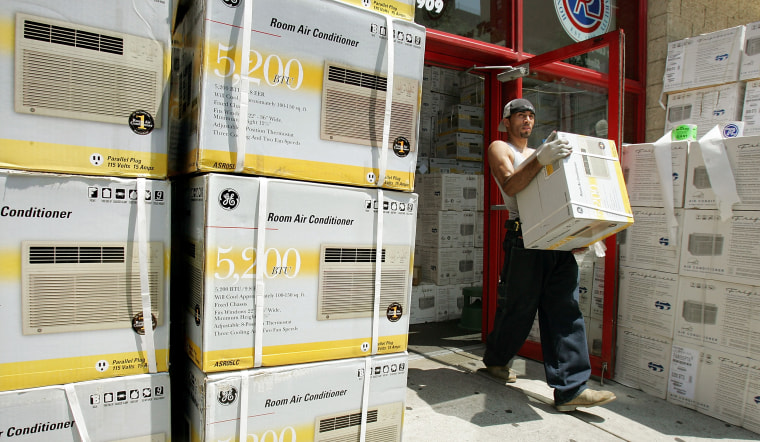There's no putting a chill on the worldwide air conditioning boom that’s expected to heat up to historic levels over the next decade.
Nations with emerging economies and spiking populations — including India, Indonesia and Brazil — are seeing air conditioner sales grow 10 to 15 percent a year. That means the world's supply of A/C units could increase from about 900 million in 2015 to roughly 1.6 billion by 2030, according to a recent Berkeley National Laboratory study.

So instead of simply trying to shut off the inexorable growth, scientists are working to find fresh energy-efficient technologies that could offset the effects A/C units have on the climate.
That's one of the purposes of the Clean Energy Ministerial, a two-day conference this Wednesday and Thursday in San Francisco that will be attended by two dozen of the world’s major countries.
U.S. Energy Secretary Ernest Moniz will host the event, and a so-called Advanced Cooling Challenge is on the agenda to discuss developing super-efficient, climate-friendly and cost-effective solutions.
That means cutting down on the use of hydrofluorocarbons — typically found in supermarket refrigerators and air conditioners. HFCs are among the fastest-growing greenhouse gases with "global warming potentials thousands of times higher" than carbon dioxide, according to the Berkeley study.
Reducing the amount of HFCs in the environment would be a better alternative to mitigating climate change than trying to control CO2 use alone, the researchers say.
In the United States, where two-thirds of homes have air conditioners, roughly 100 million tons of carbon dioxide are released into the air each year, according to the Energy Department.
Scientists worry energy use and emissions will only worsen once countries such as India — known for its extreme heat, but which is still playing catch-up in terms of A/C use — bring millions of units on the grid as a refuge from the rising temperatures.
The issue could reach a crisis point around 2060, when the Netherlands Environmental Assessment Agency predicts the amount of energy used worldwide in cooling will overtake that used in heating. By then, over 2.5 billion A/C units could make up the global stock, the Berkeley study says.
"The more cooling you have, the more heat air-conditioning systems release into the urban environment, which then elevates the ambient temperature and further increases the cooling demand," Afshin Afshari, a professor with the Abu Dhabi-based Masdar Institute's research team said this month. "It’s a vicious cycle."
